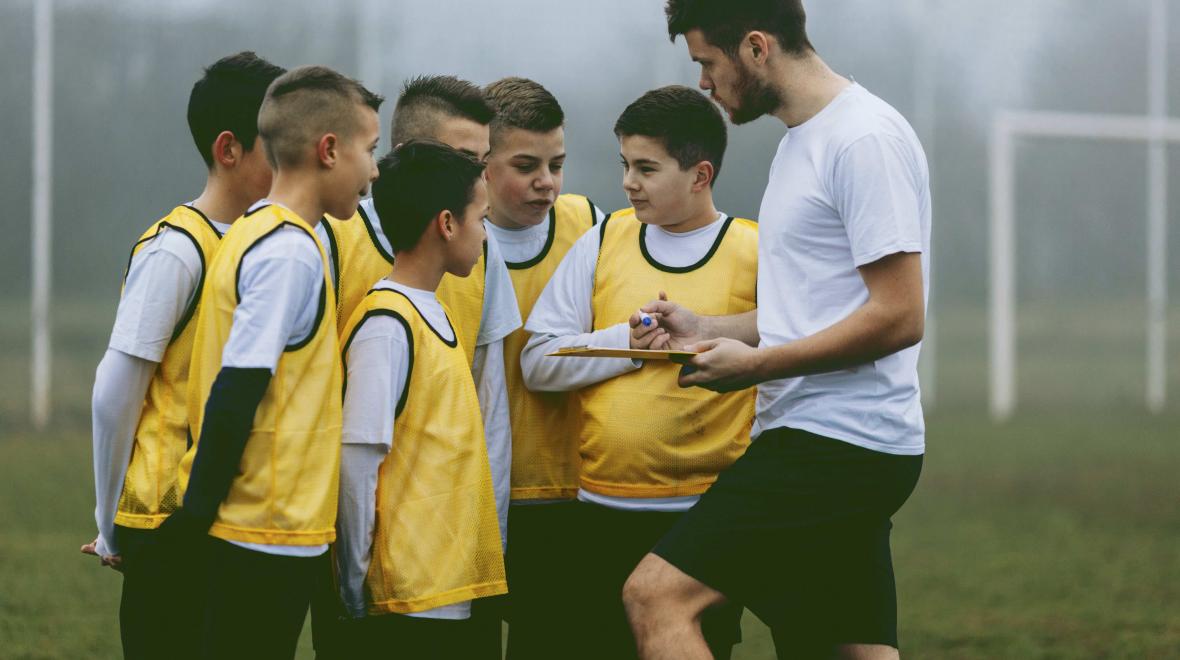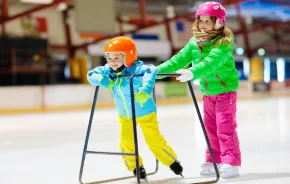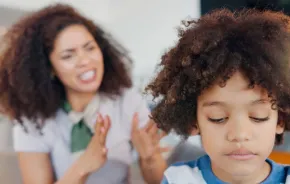
Strolling the grounds of local sports tournaments this past summer, a person might have thought our national security was at stake. “Come on, [insert child's name here], battle for the ball, attack!” “Destroy them!” Or how about this “wisdom” overheard from a Seattle soccer coach of 9-year-old girls: “You’d better not lose.”
Not all adults talk this way. But when a friend with a soccer-loving son moved to Europe for a year and saw this sign posted outside the Barcelona Soccer Academy, I began thinking more about word choices on our own sports fields.
In the club’s language, “destroy” should be replaced with “create,” as in creating opportunities. “Stealing the ball” can become “recovering the ball” and “battle/war/fight” can all be ditched in favor of words such as “competition and match.”
Is this just semantics, or does it matter? After all, these "attack" and "destroy" cheers aren’t usually directed at anyone personally, so it doesn’t really fall into the category of verbal abuse, which we all know is a problem, right? When a different friend’s lacrosse coach walked up to the players at half-time, yelled “F— You!” and turned around and left, the athletes and parents all knew that was wrong. If an adult rips a player to shreds, it can be destructive to self-confidence and morale. At the very least it undermines players’ respect for the coach.
But even the words we choose to frame our children’s sports and competition make a difference. Not just in the heat of the moment, but before and after games. The Seattle soccer mom tells me her 9-year-old’s coach’s automatic post-game remark is, “Work harder next time.” She says, “These are coaches more interested in the prestige of having their team play at a certain level and of getting the kids there at all costs over building self-esteem and helping each child overcome her own personal challenges and barriers.”
“After a loss, a lot of times we hear, ‘You played really weak’. Instead, focus on the process and what the girls feel they need to do to make progress,” advises ZGiRLS co-founder Jilyne Higgins. ZGiRLS, based in Seattle, offers sports empowerment and life-skills programs to female athletes in nine states.

Higgins encourages adults to ask questions about players’ performances rather than making statements. To well-intentioned parents and coaches, this may sound like a grammar lesson, but it can make a dramatic difference.
Higgins says progress has been made in breaking down our society’s notion that “playing like a girl” is synonymous with weakness. But the inadvertent girlie-girl digs still float around fields, so the organization made a video to help adults learn to eliminate gender bias from their lexicon. Higgins does not necessarily view the word “aggressive” as one to avoid when coaching girls; the continued expectation that girls need to be nice and polite in their everyday lives means that “a sports field is actually a great place for girls to show strength. I’m not saying it’s about winning, but trying their hardest, giving it their all,” she says.
Jo Langford has two children who play sports; both of their coaches use language he describes as “hyper-masculine.” His 8-year-old daughter plays soccer for a coach who typically teaches boys. When he uses those "drive ‘em into the ground” type phrases, Langford says, “the girls raise their eyebrows at him. The life-or-death, high-stakes drama is different than what they’re used to.”
It’s bad to pit athletes against each other, tearing each other down to try to bring themselves up. It doesn’t have to be that way.
Still, Langford, a Seattle-area therapist and author of "Spare Me The Talk! A Guy’s Guide to Sex, Relationships and Growing Up" (which, full disclosure, ParentMap publishes), says he is wary of villainizing what feels like testosterone-driven language.
“It can be good, it can help conquer challenges, but the bigger problem is differentiating the time and place for aggressive words and behavior.” He says as long as we’re teaching athletes to keep the behavior on the field, and not directed at other players, it's OK.
As we saw this summer, it’s not just the violent-sounding chants that can have negative impacts. What was one of the worst words to spew out of an athlete’s mouth at the 2016 Rio Olympics? Cowards. While she did not urinate in a gas station bathroom (cough, Ryan Lochte), goalie Hope Solo shot a verbal poison arrow when she said after Team USA’s loss to Sweden, “We played a bunch of cowards.” Ouch. Sticks and stones may hurt my bones but words will never hurt me? Wrong. Solo took heat and a six-month suspension because her words were disrespectful and hurtful.
ZGiRLS’ Higgins believes those words that are used to tear each other down can be the most destructive for all athletes. “It’s bad to pit athletes against each other, tearing each other down to try to bring themselves up. It doesn’t have to be that way.”
Paula Denton, author of "The Power of Our Words: Teacher Language That Helps Children Learn," writes that tone of voice and body language can convey an enormous amount about how we’re feeling and what we're truly thinking, perhaps even more than our actual words.
“Our tone ... can override the overt meaning of words and sour our communication in an instant,” Denton says. She adds that sarcasm may have a place in comedy, but can be damaging when teaching children. “The result is that children tend to feel humiliated and resentful, or at least confused.”
Langford believes parents and coaches need to pay greatest heed to the words said after practice or competition is over — the words that set the mindset of young athletes as they head home or back to the classroom. “What about cooling down at the end of practices?” he suggests. “We have routines at the beginning. What would happen if everyone did 10 minutes of yoga at the end of every football practice?”
Namaste.
This article originally published in September 2016 and was updated in May 2018.











